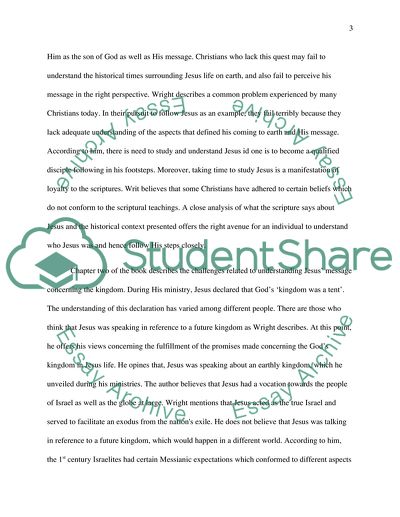Cite this document
(Analysis of The Challenge of Jesus Written by NT Wright Book Report/Review, n.d.)
Analysis of The Challenge of Jesus Written by NT Wright Book Report/Review. Retrieved from https://studentshare.org/religion-and-theology/1838011-the-challenge-of-jesus-by-nt-wright
Analysis of The Challenge of Jesus Written by NT Wright Book Report/Review. Retrieved from https://studentshare.org/religion-and-theology/1838011-the-challenge-of-jesus-by-nt-wright
(Analysis of The Challenge of Jesus Written by NT Wright Book Report/Review)
Analysis of The Challenge of Jesus Written by NT Wright Book Report/Review. https://studentshare.org/religion-and-theology/1838011-the-challenge-of-jesus-by-nt-wright.
Analysis of The Challenge of Jesus Written by NT Wright Book Report/Review. https://studentshare.org/religion-and-theology/1838011-the-challenge-of-jesus-by-nt-wright.
“Analysis of The Challenge of Jesus Written by NT Wright Book Report/Review”, n.d. https://studentshare.org/religion-and-theology/1838011-the-challenge-of-jesus-by-nt-wright.


